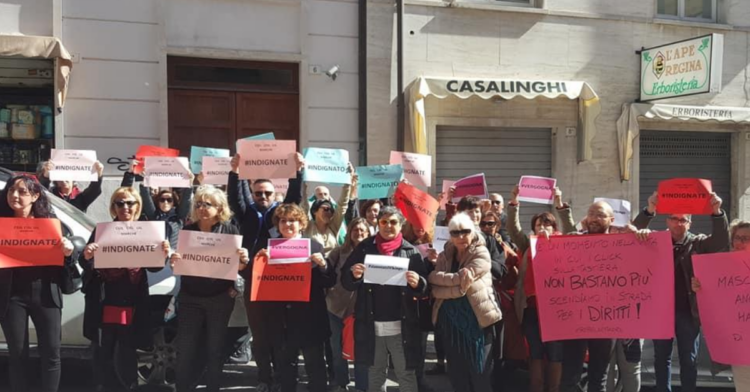For survivors of sexual assault, the prospect of coming forward and telling their stories can often be an intimidating one. As The New York Times outlined, those who do will often face scrutiny of every detail of their testimony and behavior.
Anything from the time before coming forward to selfies taken after the fact to whether they fought back or froze in what is undeniably a crisis situation can all account for the public’s perception of the survivor and the veracity of their story.
This is already unfortunate before considering that even the members of the court itself can allow these distorted perceptions to cloud their judgement of a case, as is what recently happened in Italy.
In 2015, two men in Ancona, Italy allegedly spiked a woman’s drink with sedatives after the three attended a class together.

As The Guardian reported , doctors determined that the woman’s wounds were consistent with rape and found a high concentration of benzodiazepines in her blood.
At first, a court of first instance convicted them of sexual assault in 2016.

However, by the next year, the two would find themselves acquitted of the crimes based on the decision of three judges in the Ancona appeals court.
This surprise reversal was apparently influenced by the defendants’ statements that they didn’t find the woman attractive.

They also mentioned that one of them had saved the woman’s number in his phone under the name “viking.”
The judges were also shown a photograph of the woman.
Part of the reason this photograph was used was that the woman was no longer living in Italy.

As her lawyer, Cinzia Molinaro, told The Guardian , communities in Ancona had ostracized the woman as a result of her reporting the incident.
She then returned to her homeland, Peru.
However, when the three judges — who were all women — saw the woman’s photograph and heard the testimony, they decided that the woman’s story was not credible.

Not only that, but their ruling made explicit mention that one of their reasons for acquitting the men was that the woman’s photograph reflected the defendants’ claim that the woman resembled a man and was therefore apparently unattractive.
Apparently, the idea of a sexual assault as a crime of power and not necessarily of attraction hadn’t occurred to them.
Unsurprisingly, the judges’ decision inspired protests, particularly one organized by a women’s group called Rebel Network.

Luisa Rizzitelli, who represented the group, referred to their ruling as “medieval” and told The Guardian , “The worst thing is the cultural message that came from three female judges who acquitted these two men because they decided that it was improbable that they would want to rape someone who looked masculine. It’s shameful.”
The ruling led Molinaro to refer the case to Italy’s Supreme Court, which has nullified the appeals court’s verdict.

This means that the case will now be retried, this time at a court in the province of Pelugia, which is closer to central Italy.
Although the judges’ decision clearly disappointed Rizzitelli, she did note one interesting surprise.

As she said, “To get almost 200 people at the protest was a miracle for Italy – fortunately, it shows that sensitivity towards such topics is becoming stronger.”
h/t: The Guardian

















































